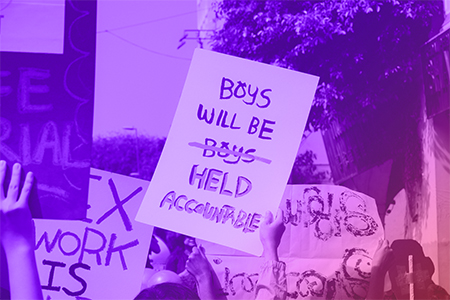What is restorative justice?
Restorative justice is best known as an alternative approach to criminal justice, which rejects punishment as its goal, and instead focuses on accountability and healing. From a restorative justice perspective, wrongdoing is not only a violation of law but a violation of relationships among people. The harm is not only suffered by an individual but is recognized as collective harm.
Restorative justice processes vary depending on the particular situation, and may not be suitable where power imbalances exist. In appropriate situations, restorative justice processes center on collaborative decision-making that builds trust while focusing on the experiences of those who were harmed (both individual and community). The central focus is on the needs of the harmed parties, balanced with the person who causes the harm taking responsibility for repairing the harm.
When using restorative justice practices, the question asked of survivors is “what do you need to feel whole again?” Tahir Duckett, Executive Director of ReThink, a groundbreaking organization dedicated to working with youth around consent, respect, and healthy masculinity echos a critical framework for realizing transformative accountability. First, it doesn’t always look the same. In the accountability process, every voice should be heard. At a minimum, it must mean that responsible individuals and institutions-
- Recognize the harm done to survivors;
- Begin to repair the harm done to any survivors;
- Recognize the harm done to the community; and
- Begin to repair the harm done to a community.
Survivors Know is committed to exploring restorative justice practices in our pursuit to center survivors and generate structural change. This is a growing collection of resources that we will add to it as we advance this work among Solidarity Circles, workplaces, and our communities.
Articles & Resources
- How to Give a Good Apology Part 1
- How to Give a Good Apology Part 2
- Beyond Survival: Strategies and Stories from the Transformative Justice Movement
- Fumbling Forwards Repair: A Workbook for Community Accountability Facilitators
- For Sexual Assault Survivors, Restorative Justice May Offer An Alternative To A Broken System
- What Works at Work: Promising practices to prevent and respond to sexual harassment in low-paid jobs
- Transformharm.org
